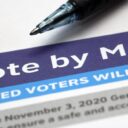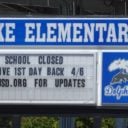
Voters Solidly Reject the Arrangement in Corker-Cardin Bill

Iranians burn the American and Israeli flags following the announcement of the negotiated nuclear agreement in Tehran. (Photo: Hamed Malekpour)
On Wednesday, President Obama received the 34th vote needed to sustain a veto of a bipartisan bill opposing the deeply popular Iran nuclear deal. However, as PPD has shown to be the case since the president announced the agreement negotiated with Tehran, American voters are adamantly opposed to the deal and the arrangement outlined by the Corker-Cardin bill.
The latest Rasmussen Reports survey finds that 66% of likely voters believe any agreement the Obama administration negotiated with Iran should require the actual approval of Congress. While that’s nearly unchanged from July just after the deal was announced, only 20% now say they do not think the deal requires congressional approval. A stubborn 14% say they are still not sure.
Retiring Sen. Barbara Mikulski, D-Md., announced her support for the Iran deal Wednesday, which followed announcements by two key Senate Democrats–Sen. Chris Coons, D-Delaware, and Sen. Bob Casey, D-Penn.– on Tuesday that all but ensured approval. The deal, which Obama has characterized as his foreign policy ObamaCare legacy achievement, will also fail to garner bipartisan support, as well. Sen. Jeff Flake, R-Ariz., announced in mid-August he would vote “no” on the agreement, ending any hope at the White House that the deal would enjoy bipartisan support in Congress.
While GOP congressional leaders in D.C. are quietly and privately breathing a sigh of relief–mainly because they will likely avoid a filibuster fight in the Senate–many lawmakers and pro-Israel activists in both parties are furious over the approval of what many believe should’ve been subject to treaty ratification. Rather than needing 41 votes to approve the deal, as was designed by the bill crafted by Sens. Bob Corker, R-Tenn., and Ben Cardin, D-Md., President Obama and supporting Democrats would have needed 67 votes in the Senate to ratify the deal.
According to PPD tracking of the average of polls on the Iran deal, opposition has held steady since the president announced the agreement with the regime in Tehran. On average, 58% of Americans oppose the deal negotiated by the president and Secretary of State John Kerry, while just 29% on average support it. As we have repeatedly published, the reason for public opposition to the deal has been consistent and it is two-fold.
First, Americans do not believe Iran will keep their end of the deal and, second, they do not think that it will make the world and/or region a safer place. A whopping three-quarters (75 percent) of voters say Iran cannot be trusted to honor the agreement (75 percent), which includes almost all Republicans (93 percent), most independents (80 percent) and even a majority of Democrats (59 percent).







dmartin1910 / September 16, 2015
The people elect their representatives and then the three arms of government run the government…not the people. The government would get bogged down and nothing would be accomplished any other way. The President has the votes he needs to veto the bill. Everybody would not have been worried about the number of support votes coming in and the “magic number” if that was not the case. Republicans are just whining because they lost.
/